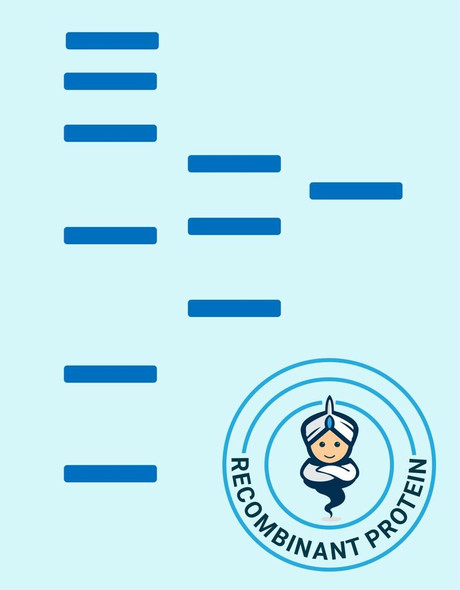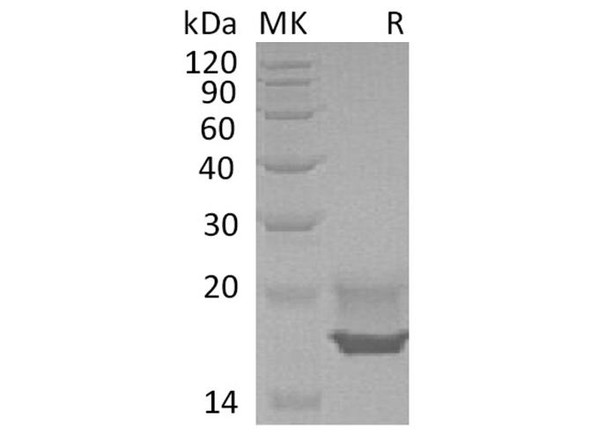Description
| Product Name: | Human CDNF Recombinant Protein (N-His) |
| Product Code: | RPES6483 |
| Size: | 20µg |
| Species: | Human |
| Expression Host: | E.coli |
| Synonyms: | ARMETL1 |
| Mol Mass: | 21.79 kDa |
| Tag: | N-His |
| Purity: | > 98 % as determined by reducing SDS-PAGE. |
| Endotoxin Level: | < 0.1 EU per μg of the protein as determined by the LAL method. |
| Bio Activity: | Testing in progress |
| Sequence: | MWCASPVAVVAFCAGLLVSHPVLTQGQEAGGRPGADCEVCKEFLNRFYKSLIDRGVNFSLDTIEKELISFCLDTKGKENRLCYYLGATKDAATKILSEVTRPMSVHMPAMKICEKLKKLDSQICELKYEKTLDLASVDLRKMRVAELKQILHSWGEECRACAEKTDYVNLIQELAPKYAATHPKTEL |
| Accession: | Q49AH0 |
| Storage: | Generally, lyophilized proteins are stable for up to 12 months when stored at -20 to -80°C. Reconstituted protein solution can be stored at 4-8°C for 2-7 days. Aliquots of reconstituted samples are stable at < -20°C for 3 months. |
| Shipping: | This product is provided as lyophilized powder which is shipped with ice packs. |
| Formulation: | Lyophilized from sterile PBS, pH 8.0 Normally 5 % - 8 % trehalose, mannitol and 0.01% Tween80 are added as protectants before lyophilization. Please refer to the specific buffer information in the printed manual. |
| Reconstitution: | Please refer to the printed manual for detailed information. |
| Background: | Cerebral Dopamine Neurotrophic Factor (CDNF), also known as ARMETL1 (ARMET-like protein 1), is a secreted protein with eight conserved cysteine residues, predicting a unique protein fold and defining a new, evolutionarily conserved protein family. CDNF is a novel neurotrophic factor with strong trophic activity on dopaminergic neurons comparable to that of glial cell line-derived neurotrophic factor (GDNF). CDNF/ARMETL1 is a evolutionary conserved protein which can protect and restore the function of dopaminergic neurons in the rat model of Parkinson's disease, suggesting that CDNF might be beneficial for the treatment of Parkinson's disease. CDNF is widely expressed in neurons in several brain regions including cerebral cortex, hippocampus, substantia nigra, striatum and cerebellum. Human CDNF is glycosylated and secreted from transiently transfected cells. CDNF promotes the survival, growth, and function of dopamine-specific neurons and is expressed in brain regions that undergo cocaine-induced neuroplasticity. |






